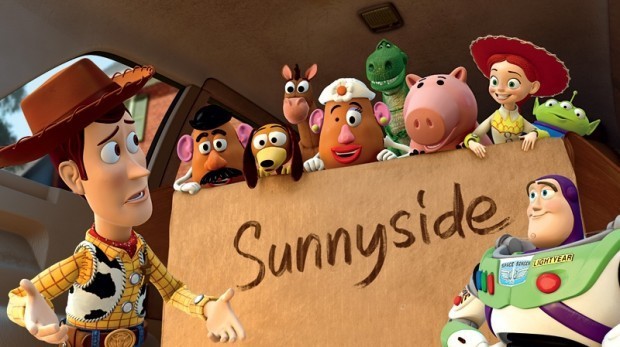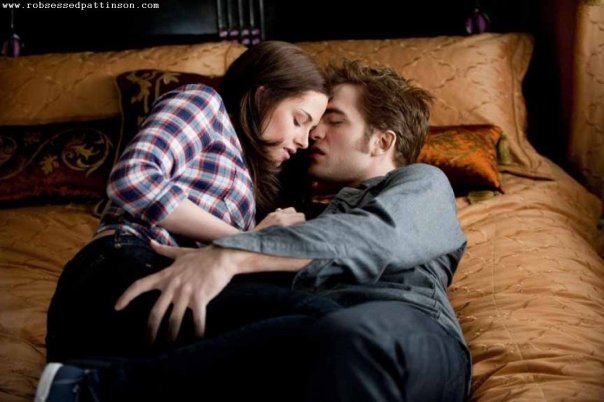
Many of you will have, even if you haven’t heard the episode of /filmcast he made his comments on, recently read about comments made by New York Press film critic Armond White on the state of film criticism. Notably he said that he believes it is fair to say that that Roger Ebert destroyed film criticism. ROGER EBERT! The man who has done more to introduce people to film criticism than anyone else alive, the man who essentially introduced criticism into popular culture (along with Gene Siskel) with At The Movies, the man, lest we forget, who WON A FUCKING PULITZER PRIZE for his criticism. Amazingly, this was but the tip of the gigantic iceberg of wrong that White unleashed on /filmcast and actually it’s not the point I most object to.
White has a bigger bone to pick with the proliferation of young critics on the internet (ironic, given that White’s own notoriety comes largely from his own web presence) and suggested that nobody under 30 should be allowed to write criticism because they inherently lack the life experience and knowledge of art, politics and religion that he believes is required to do the job, to say nothing of the formal education in film. Where to begin?
Let’s start here, one thing is clear to me and that’s that despite the many people accusing him of being stupid, Armond White is not an idiot, and you’d be an idiot to dismiss him as such. The problem with White isn’t that he’s dumb, nor that he’s dishonest, the /filmcast interview demonstrates very well indeed that as wrongheaded as most of his opinions seem to be they are both genuine and intelligently spoken (actually, he’s got a rather flowery way of speaking and writing, which often verges on the pretentious). For my money he’s misdirected his obvious intelligence. He clearly has some understanding of how to read a film. In fact if anything he’s probably got too much understanding and enthusiasm for reading a film because he seems to think that whatever reading he comes up with, whatever the film, he must be right. And he’s so often not.
Let’s take a quick look at his Toy Story 3 review. Armond says:
“Toy Story 3 is so besotted with brand names and product-placement that it stops being about the innocent pleasures of imagination—the usefulness of toys—and strictly celebrates consumerism.”
I see where he gets that reading, but he grasps so tight on to the idea that he doesn’t see either why the toys that Pixar have chosen are recognisable ones (because Barbie and Ken are more identifiable for an audience than, say, Amy and Bob; it’s all about emotional connection) nor that the actual message that Toy Story 3 spends most of its running time delivering is THE EXACT OPPOSITE of what he thinks it is. Toy Story 3 is not a film about our disposable, consumerist culture. It is a film about the emotions we have connected to the stuff of our lives, and the rite of passing that on to the next generation. It’s as far from consumerist as you can get.
Now, let’s say that White’s right, and that Toy Story 3, rather than being a beautiful, elegiac, emotional story IS just a long form advert… well surely then that’s true of a lot of films, and especially the 150 minute car advert that is Transformers: Revenge of the Fallen. Here’s Armond on that film:

“Bay is an ideal director to realize this peculiar genre, which remakes the surfeit of adolescent commercial media as a means of multimedia gratification.These cars, trucks, motorcycles and planes—both human-friendly Autobots and dastardly Decepticons—metamorphose fast, but their transfiguration is like the mechanical toy descriptions in E.T.A. Hoffman: fantastic and uncanny.”
So Michael Bay’s car porn is about transfiguration, but Toy Story 3 is just an advert? Lunacy! White puts a great deal of stock in a theoretical film education for critics, well, lucky for me I have one of those and that’s a real problem for Armond. White writes like a kid who has just discovered film theory, and fallen in love with the ideas, but doesn’t yet know how to apply them. There’s enthusiasm for the language, but little understanding of it. He throws out big words as if their big and complicated nature alone should make us gasp at the insight, giving little thought to the kind of film he’s looking at and whether it really warrants this level of analysis. This is the thing; not all movies need to be analysed for their subtext (Revenge of the Fallen, frankly, has none, it’s all text and very loud and obvious text at that).
White’s Transformers 2 review is so mind-alteringly strange that it almost approaches parody. He doesn’t actually LOVE the film, but the things he ascribes to Michael Bay are often flat out hilarious. Here are a few extracts:
“Who else could compose a sequence where characters (albeit robots) go from the bottom of the sea to another planet in one seamless, 30-second, dreamlike flow?”
The answer to this (whisper it) is “anyone with the CGI budget”.
“Sam innocently acquires the secret code of the aliens’ cosmic history—something to do with his American kid innocence and appreciation of middle-class life’s abundance.”
hahahahahhahahahahahahahahaha.
“Bay’s post-nuclear version of Hoffman’s The Nutcracker stirs emotion from our pop culture, industrial experience then connects to ancient spiritual myths (like Kingdom of the Crystal Skull). It’s too much the production of industrialization to be considered magic, yet Bay’s sheer fascination with seeing is impressively communicated.”
This paragraph exploded my mind into a thousand pieces (if only Michael Bay had been there to film it. With six cameras. Against a sunset. In a circular motion. In slo-mo). Emotion, in Revenge of the Fallen? Honestly, when?

There's more, much more, where that came from, but I don’t want to just rag on Armond White for one review, largely because I’m sure there are quotes you could pull from this site and use in a similar way if you were so inclined. Actually to a certain degree I’m glad White is writing, he may be certifiably insane, but he seems to believe in every last word he types, no matter how far up its own arse his prose disappears, and you certainly can’t accuse him of being dull. Criticism is a job for the opinionated, and White is certainly that.
Dumb though Armond White isn’t, he did say something very, very stupid on /filmcast when he actually declared that there should be no film critics under 30. Now, I’m not, as White would style it, ‘a professional, pedigreed film critic’, but I like to think that I AM a film critic. After all, I do have that film education, that grounding in theory. I have seen films from every decade from the 1890’s to the 2010’s. I have seen films from over 30 different countries and in practically every style and genre (the only ones where I feel my experience is truly lacking being Bollywood and, well, porn). I, in short, know my shit. I am 29.
Now, apparently, Armond White thinks that in just over 11 months, on my 30th birthday, I will be magically gifted the life experience needed to qualify me to write about movies, but that the fact that I’ve spent 21 years immersed in cinema, seen over 7000 films, written about movies for an audience for 11 years and now have an audience of several thousand a month apparently doesn’t count. Well frankly that’s bollocks, and dismissing young internet based critics is blinkered and stupid.
I’ve been writing and reading film criticism on the internet for over a decade, and over that time, largely through the Joblo.com forums, I’ve seen a lot of young moviegoers who began simply as enthusiasts expand their horizons and develop their critical faculties. Did each of us like some embarrassing shit along the way, has each of us written something we wish to god we hadn’t pushed send on? Of course, but that’s exactly why Armond White is so catastrophically wrong. It is GREAT to see young people who are switched on to cinema (indeed to culture of any kind) and the younger they begin both watching and writing about cinema the faster their viewing habits and their criticism will develop. Many of the fellow critics with whom I have become friends through the net (smart, switched on people every one of them) are younger than me, and some of them blow even my mind with the depth and breadth of their knowledge of and love for cinema. Is White REALLY saying that we shouldn’t listen to them (or me) because they haven’t turned 30?
My worry about culture and the commentary on it is the exact opposite of Armond White’s; as I look around I see ever increasing numbers of sheep, herding themselves into Hollywood’s latest abomination and drooling in slack-jawed pseudo approval, I see the ever increasing acceptance in cinema of simple adequacy, so when a member of this generation sits up and says that they want to engage with movies I want to encourage them. I want to help excite them about this wonderful artform, not to tell them that their opinion is worthless to me for the next 15 years. What kind of prick does that?
I recently met a kid on the train who clearly loved movies, he was 10, so he doesn’t have any grounding in film theory, nor any pretensions, he was just excited by cinema. That’s a wonderful thing. I told him that I was a critic, and he asked how I’d started doing it. “Write”, I told him, “just write about everything you see, you’ll get good”. Film criticism is too important, and cinema a thing of too much childlike wonder, to be left strictly to the grown ups.









(150210000218)Toy_Story_3_3.jpg)















